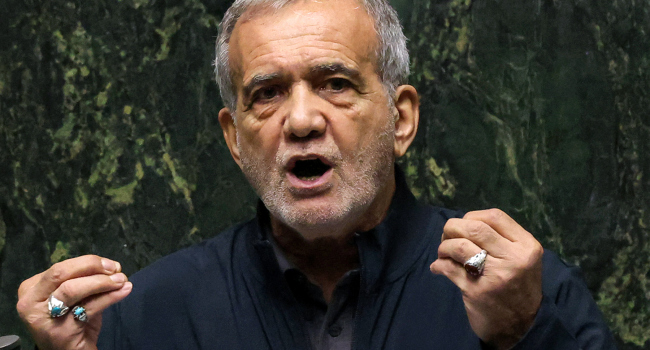Iran’s president said on Sunday that a potential ceasefire between its allies and Israel “could affect the intensity” of Tehran’s response to Israel’s recent strikes on Iranian military sites.
“If they (the Israelis) reconsider their behaviour, accept a ceasefire, and cease massacring the oppressed and innocent people of the region, it could influence the intensity and nature of our response,” Masoud Pezeshkian said, as quoted by state news agency IRNA.
He added that Iran “will not leave unanswered any aggression against its sovereignty and security,” according to the news agency.
Israeli warplanes carried out the 26 October strikes in what Israel described as retaliation for Tehran’s 1 October missile barrage.
Iran had, in turn, characterised that attack as a reprisal for the killing of Iran-backed militant leaders and a Revolutionary Guards commander.
Since the strikes last month, Israel has cautioned Iran against retaliating, while Tehran has vowed to respond.
On Saturday, Iran’s supreme leader, Ayatollah Ali Khamenei, who holds the final say on all state matters, said the Islamic republic would retaliate.
“The enemies, both the USA and the Zionist regime, should know that they will certainly receive a crushing response to what they are doing against Iran, the Iranian nation, and the resistance front,” Khamenei said in a speech to students in Tehran.
He was referring to the alliance of Tehran-backed armed groups, which includes Yemen’s Houthi rebels, Lebanon’s Hezbollah movement, and the Palestinian Islamist group Hamas.
Following the strikes, Israeli Prime Minister Benjamin Netanyahu stated that they “hit Iran’s defence capabilities and missile production.”
Iran’s armed forces reported that the attack killed four military personnel and caused “limited damage” to a few radar systems. Iranian media reported that a civilian was also killed.



